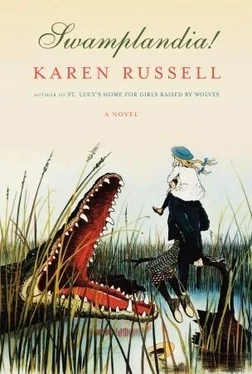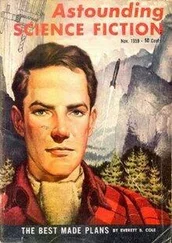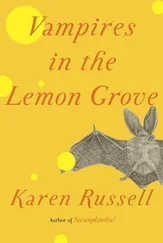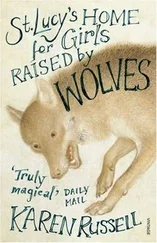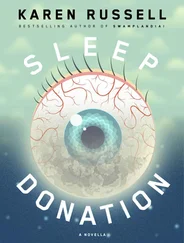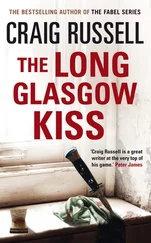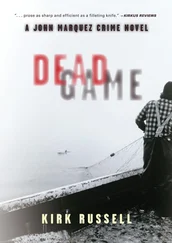I ran for what felt like miles before allowing myself to slow, first to a trot and then to a wheezing walk. My vision got squiggly, and for a bad moment I thought that I would throw up. A saw-grass prairie had speared up all around me. I’ve read stories about Midwestern farmers who became lost in their own tall crops and I can imagine what that would be like — the saw grass went on for miles in every direction. I could make out little yeasty-rises of trees, bayhead islands, but no towns and no people.
“This is the stupidest thing you’ve ever done, Ava Bigtree.” My voice did not sound much like my mother’s. It spiked against the hum of the saw grass — on the horizon I saw a brown, serrated sea. I did not see an exit, an end to the echoing plants. If I could get back to the Calusa shell mounds, at least I’d know I was going the right way: north and east, homeward. Against the river’s grain, the blue grin of the water. “A house,” just the idea of a walled place you could enter, felt like a dream to me. I turned a circle in the tall grass, and every horizon looked like a step in the wrong direction.
As I sloshed forward, the song that we’d heard on the hunters’ radio yesterday began to play in my head—“Bye, bye, Miss American Pie.” The singers’ cheerful voices had gone soft as wax between my ears, and I couldn’t stop the chorus from looping and looping. Those lyrics put bad pictures in me: a gushing, a cherry-red spill onto the wide reeds, a Chevy’s somber drive past the dry levee, and men inside the car, strangers crooning a farewell, their faces as mournful as blue dogs behind the dirty glass of a windshield. I pushed my face into the last dry square of my T-shirt. Ossie was dead, I was almost sure now. I felt pretty solidly that I was going to die out here. I toweled my eyes and kept walking.
Whip Jeters had seen me the previous afternoon, outside of the Eye, I remembered with a sudden fierce relief — but he thought I was on a fishing trip. Would he maybe contact the Chief to check my story out? I did not think so. I did not think he would. Why not keep things simple, go home to his wife and his dinner and his television, believe what I had told him? Was the Bird Man, my “cousin,” looking for me? I thought about the two possibilities:
Yes (you will be found by him).
No (you won’t be found by him).
Inside me these words took on the dimensions of rooms. To escape them I tried to recite multiplication tables as I walked, then weird-sounding state capitals like Bismark and Honolulu and Carson City, then my family’s birth dates, and then the galloping da-dum, ba-dum of the Tennyson and Edgar Allan Poe poems that I had once memorized to impress Kiwi (“… with a love that the winged ser aphs of heav en …”), anything to keep me moving. I was walking east, I thought, toward a large hammock, a place where the saw grass shuffled into a gloam of hardwood trees and boggy water. I felt the first tickle of thirst in my throat and this exploded into panic, like a germ flowering into a full-blown illness. (DRINK-DRINK-DRINK-DRINK! screamed my body at me, all sums and poems swallowed up by my thirst.) I put a palmful of rusty water into my mouth and spat it out — I wasn’t thinking clearly. I couldn’t afford to get sick, throw up, dehydrate myself further.
Then I convinced myself that I was being followed. I hugged a crusty root and hunched in two feet of water. Something came splashing through the cypress dome and I closed my eyes, struck by the crazy idea that the flash of white gel in my eyes would give me away. What did I have to defend myself with? I did a depressing inventory: wet clothing that at this point was truly coming apart at the seams. Ossie’s ribbon. I had no food, no water. Okay. Okay. My mind chattered on, chewing through its own defenses. I had gone sprinting into the middle of the night. I had just run away from the only person who knew I was here.
You might be surprised to learn that I didn’t know how to use a flare or start a fire. I’d lived in the swamp my whole life and I had no idea about the Essential Next Steps, what a person should do to save herself. Okay. Okay. Okay. Grandma Risa, my mother, Grandpa Sawtooth, the Chief, any one of them would be halfway home by now. Kiwi would have invented a radio with crystals from the river and made a genius escape.
I thought that Kiwi would have done me one better. He would never have come here.
Soon I was thirstier than I’d ever been in my life. It wasn’t the actual thirst but the imagined thirst that was killing me, the picture of myself a few days from now crawling through the mangrove woods without a water bottle. Like Bianca and Michael, I thought (or: like my sister ). And whenever I thought this, for just a second I’d miss the Bird Man so badly, his weird and sanguine whistling on the poling platform, his maps and his sunbursts of kindness and especially his promises that we would soon recover Osceola.
The woods were all sound. It was too black to see anything from where I was squatting but I heard a barred owl singing its whereabouts to a phantom mate until I longed for Grandpa’s shotgun, to silence its relentless romancing. Didn’t the barred owl know who might be out here with us? Mostly I heard the mosquitoes. A soupy splashing somewhere far behind me that I thought might be an alligator. A branch fell, sending up a lot of froggy chirruping like a little sonic dust.
Every year Search and Rescue saved a dozen novice fishermen, kayakers, and canoers from the carnival halls of the mangrove tunnels not four miles off the Loomis coast. Water made endless mirrors and the small islands repeated themselves like a bad stutter, confusing the fishermen. These “terrestrial echoes” were the “swamp’s echolalia,” according to Kiwi, who liked to make geography as pretentious as possible. “The Ten Thousand Islands” pretty nearly described their number. Park Services marks the touristed canoe and kayak trails with white skunk lines on the shoreline pines; in that alphabet of ranger paint, every turn is spelled out for you. If you deviate from these popular loops, the stern rangers warn, and try to chart your own course through the labyrinth, you are entering a kind of Death Lottery. Kiwi called this claim “administrative hyperbole.” The Chief said we kids better stay on the goddamn trail and travel in a pack or he would kill us, guaranteed, no lottery required.
“You’ll have to be very brave, kid,” the Bird Man had said when we rounded the first blue bend, gesturing at all the humming greenery that ringed our stern. He’d made this same emptiness seem so exciting, like a field for real magic. I bit my lip and I thought about how good it had been that first day, back when I was separated from Ossie by twelve hours, tops. Just one meridian, really, one sunless wedge of time. Who knew how many hours separated us now?
One excellent luckiness was the moon. It was full and enormous, and without it, I doubt I could have made it even half a mile through the swamp that night. Water the color of hard cider slid between the trees and everywhere I looked I saw schools of tiny red and black fishes. I’d never seen fish like this before (although they looked very ordinary, it’s not as if they had coals for eyes or anything) and I didn’t know any of their names. Linty flowers covered the floating twigs. The air was smelling saltier to me; perhaps I was nearing the Gulf.
By this point I had given my sister up. Not for dead — I don’t mean that — but I’d given up on the idea that I was going to find and save her. I had failed her so completely that my mind would not permit me to think about it. I kept sticking my finger into the bib pocket where my red Seth had been, wiggling it around the way you do when you’ve misplaced your house keys and you keep checking the same four places with compulsive hopefulness. Where was she, my alligator? The Bird Man had killed her, I thought, kicking a rock and unearthing a squeal of ants. Even if she’d gotten away from him the prognostications were grim — alligators with unusual pigmentation can’t camouflage themselves in the dust-and-olive palette of the swamp. Their skin is spotlit for predators. That’s why you don’t see albino Seths in the wild. Once an alligator reaches a size of four feet its only real predator is man, but during the first few years of a hatchling’s life it has to worry about predation by pretty much everything: wading birds, buzzards, garfish, raccoons, snakes, the cannibal kings in our Pit.
Читать дальше
